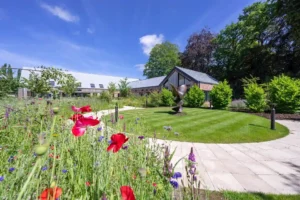Find out what to expect if you are spending this Christmas in rehab. There is a safe space to reflect and move forward at Delamere.
Relapse Support Help Guides
The prospect of relapsing in recovery after all your hard work can be terrifying. Discover tried-and-tested mechanisms in our relapse support help guides for preventing relapse if you feel close to returning to addictive behaviours as well as strategies to support you or a loved one if relapse does occur, plus much more.


Latest relapse articles
-
The relapse and recovery cycle explained
-
What is the difference between a slip and relapse?
-
How often do people relapse?
-
How to deal with relapse in recovery?
-
The stages of alcohol or drug relapse (process)
-
5 rules to help to prevent a relapse
-
Warning signs of a potential relapse
Discover more advice on the Delamere blog
-
-
How to help someone into rehab
Helping a loved one or colleague into rehab can be a very stressful & sensitive topic. Read Delamere's post on how to help someone into rehab to help guide you through the process.
-
Alcohol Shakes: Are They A Sign Of Alcoholism?
We all have a different relationship with alcohol. For some,…
-
A Guide To Christmas In Recovery
Christmas time can be a daunting period in recovery. Especially…

















